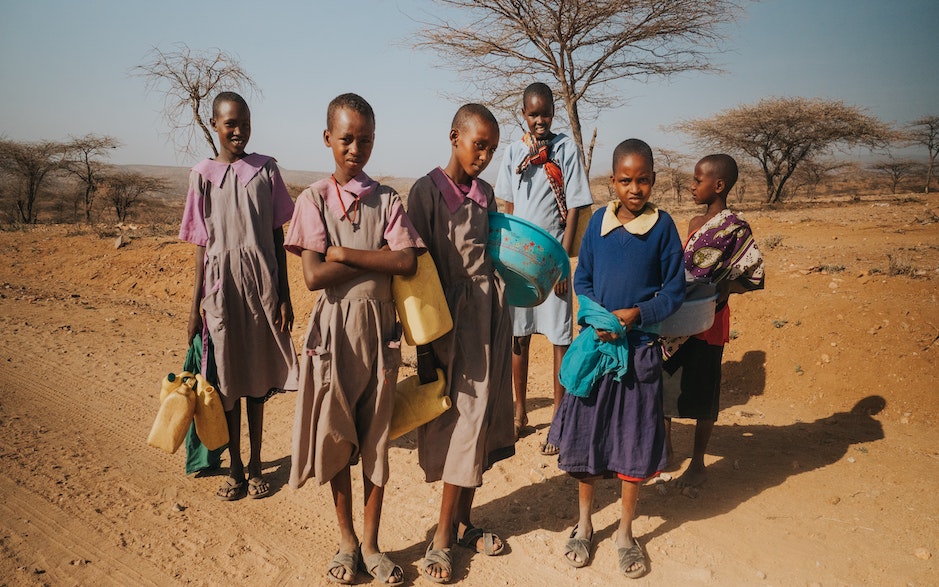Successfully sending volunteers abroad for 10 years
There is an unquestionable point in my life since I’ve lived in Kenya; I have changed. For starters there were changes in the circumstances; I had quit my job to go on this journey, I spent my savings, on my return, I ended my 8-year relationship, left the apartment I was living in, moved in with a friend and the list goes on and on. But, none of these compares to how much I’ve changed as a person. Travelling usually does this to us.
The list of personal lessons is long but I will concentrate on only a few of them. There is one particular point that made this journey not only about finding myself but more like rescuing myself.
Some lessons are experienced by most volunteers and, at some stage during the trip, we all think about them. This is my personal point of view on those:
Lesson 1: Material Possessions Are Practical But Not Essential
We often realise that we have a lot, and it is not directly related to the actual amount physical of things we own but changing our perception about what defines ‘having a lot’ in our lives is essential. When we find ourselves in the middle of society with such extreme inequality we tend to reconsider what is necessary to keep us alive.
Don’t get me wrong, I did not come back with the idea that we should donate everything we have in order to solve the problems of the world or find spiritual transcendence, instead, I’ve just well-defined the place that material possessions hold in my life - practical but not essential. Like my money - I own it - it does not own or define me.
It is about finding a balance, and most of us will return to a routine very differently to the volunteering routine where some commodities like microwaves and washing machines are a part of it because our jobs and lifestyle afford these luxuries we don’t stop to consider.
This sense of detachment of material possessions does happen when doing charity work volunteering, and it does make us question a few things. However, it shouldn’t make us feel guilty for what we have but instead simply understand that these things are here to make our lives easier, save time and improve the quality of life. It is nice to reflect on how much these practicalities do not define our happiness.
For some people, seeing poverty in real life for the first time is what provokes this; as I came from Brazil and had experienced this social condition close to home already, what got me instead was that I realised that even if I had given them everything I own I still wouldn’t solve their problem, or make them happier, but I could give a little help by daily exchanging life experience and knowledge.
Lesson 2: Donating Does Not Solve The Problem
Don’t get me wrong, donations are essential and keep most of the institutions up and running, but there are more ways we can help and more actions that are necessary.
What I’ve seen and learnt is that the current habit of donating what a community needs is not always solving the problem but delaying it. If they need provisions now and have it handed to them, in a while they will need again, so this creates a system of constant donation that is not sustainable.
SUSTAINABILITY - A word that I finally got to understand the actual meaning of while volunteering with Agape and Marafiki.
Of course, urgent donations are more than necessary because when people are hungry and they need food straight away, but what happens after? They’ll be hungry again tomorrow.
This is why only donating will not sort everything, there are many ways to help if you don’t have the money or if you do donate the money and can still do some more, like teaching a trade, educating, sharing knowledge and ideas, and basically helping to develop people. By supporting people’s development we contribute to real community development which is more than just statistics on a page. And learning to give a little help whatever way I could, led me straight into the next lesson…
Lesson 3: Charity Work Is An Exchange
Our primary feeling when we think about volunteering is that we will be helping someone, this is a misrepresentation of what happens; in reality, there is no giver and receiver, volunteering is all a huge exchange.
Initially, I was meant to be a teacher’s assistant in a school in Nairobi, Kenya but when I got there the school had not enough teachers to cover the classes so I felt confident and agreed to take a class of my own.
Kids are kids everywhere in the world, although they are eager to learn and glad for our presence, they do have a short attention span, a high concentration of energy for playing and fighting and a tendency to misbehave, summarising, there were difficult moments when I thought “why am I doing this again?”.
But there were laughs, hugs, jokes, pupils teaching me Swahili words, telling me all about their lives and teaching me that there are many ways to look at life’s situations.
To be kind to myself, I may have taught them a thing or two to them, and I also learnt over a hundred things from them! At the end of the day, we are all trying to get by the day, trying to improve ourselves and live a good life.
When I look back at these moments I can only remember ever feeling happy, not because everything was perfect but because we were always trying to be the best we could.
Lesson 4: Culture Immersion
I needed to look inside myself. There were parts of me that I had left behind. Although we should change constantly and leave behind what does not suit us anymore, there are characteristics that are parts of who we are and we should not abandon them.
When volunteering in Africa we can experience African culture spending time with the kids and staff at placements, from the people we meet on the streets (in Kenya everybody is ready to share a little bit of their life with us), going out, etc., I expected this, but what I didn’t expect was how much more I would learn about culture while at home. The volunteers’ home is a place that I will consider forever one of my homes in this world.
And it was not only about African culture. I’ve learnt phrases in Japanese, confirmed that Brazilian Sushi is highly adapted to our cuisine, I’ve learnt that in some places in America home-schooling is not only for rich people (it is in Brazil), heard an Australian confiding that they are not really good at barbecuing they just do it a lot and that is why they are famous for it (I hope she will still be my friend after finding out that I published this!), and these are just a few things.
By exchanging stories with staff and volunteers we learn a little bit of every culture. After having a great day at placement we often got together for a chat after dinner, or drinks around the campfire and for me this was as valuable as the rest of the experience. Why? Because learning about new cultures makes us take a look at our own.
By experience a culture with so many similarities to my Brazilian culture I realized that I had left too much behind. When I moved abroad I unintentionally began to replace cultures rather than combine them, and after leaving home for the second time and living in Kenya I knew I had to recover some parts of it.
Our cultural traits are part of our identity, there are the ones we choose to have and the ones that come unconsciously. When we look properly into it and challenge the very core of the characteristics we have, the outcome is that we can identify which one is which, then decide which cultural parts are good and should be kept and which ones we should change. Also, we should change, we should evolve, this is one of the reasons for travelling, but we don’t need to completely lose sight of our origins.
Challenging for the first time the cultural traits I carry from both where I am from and where I chose to live was impactful, because it began a new process of finding out who I am, all over again. I thought that since I had changed once already I had found out who I am, but I figured out that we don’t need to be the same person in all phases of our life, this is beautiful, it means that we can adapt, find the best parts of ourselves and search for happiness no matter where we are in the world.
Volunteering in Kenya is a rewarding experience that challenges who we are and our values. Each of us gets touched by a different aspect and the experience influences us in different ways, however way it is, we do not leave Africa the same way we stepped in it for the first time.
When we become a better person, it reflects on those around us.
Other Thoughts
We've always got plenty going on, so why not check out some of our other latest news and thoughts? Or perhaps you're ready to gt stuck in yourself? If so, Apply Now to get in touch with one of our specialist trip advisors.

